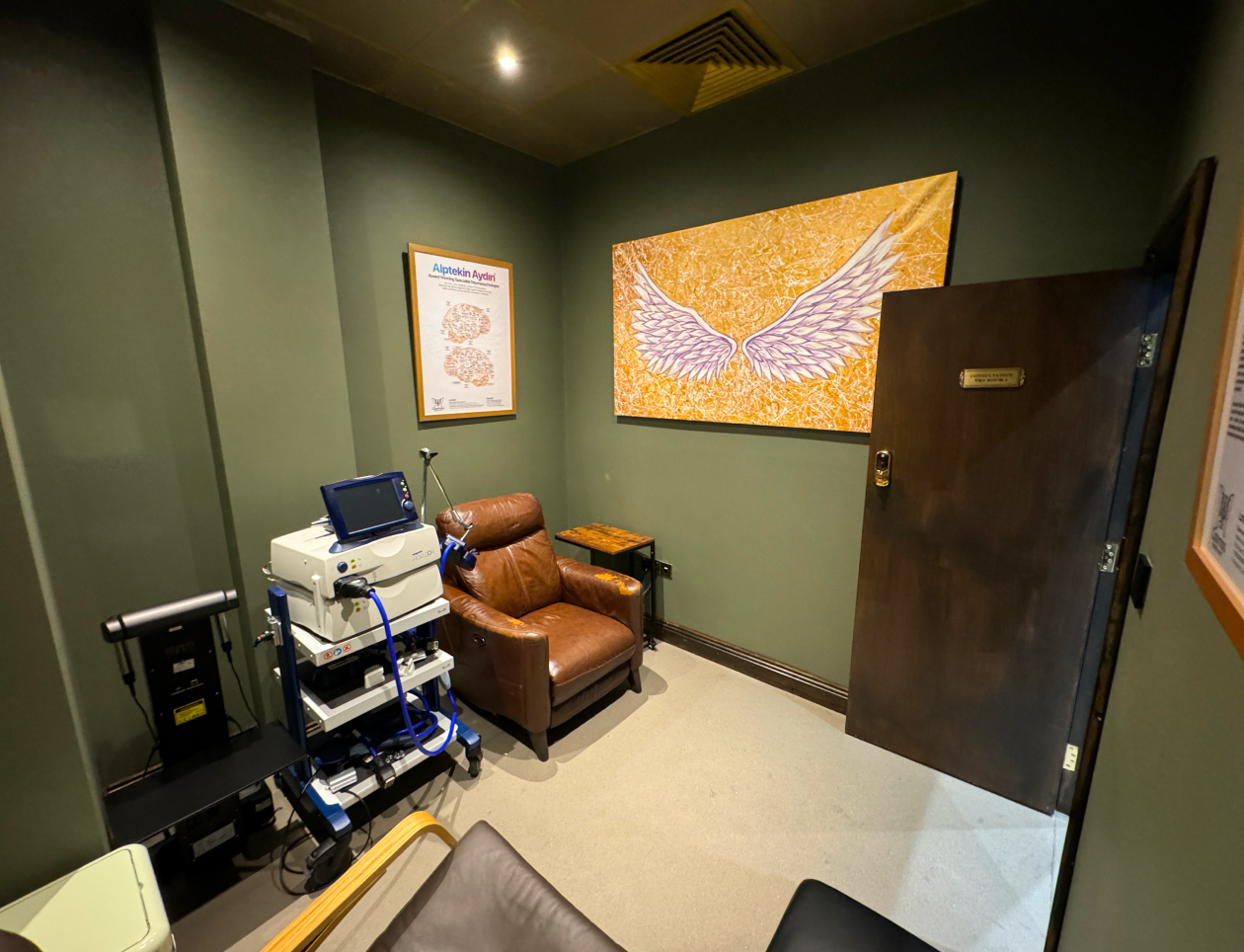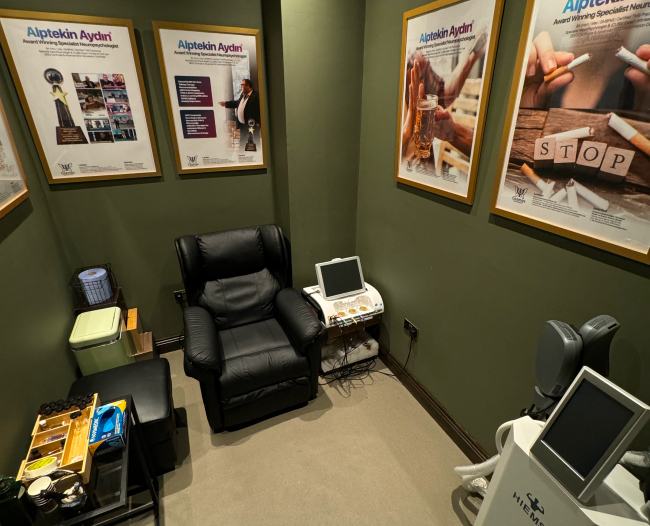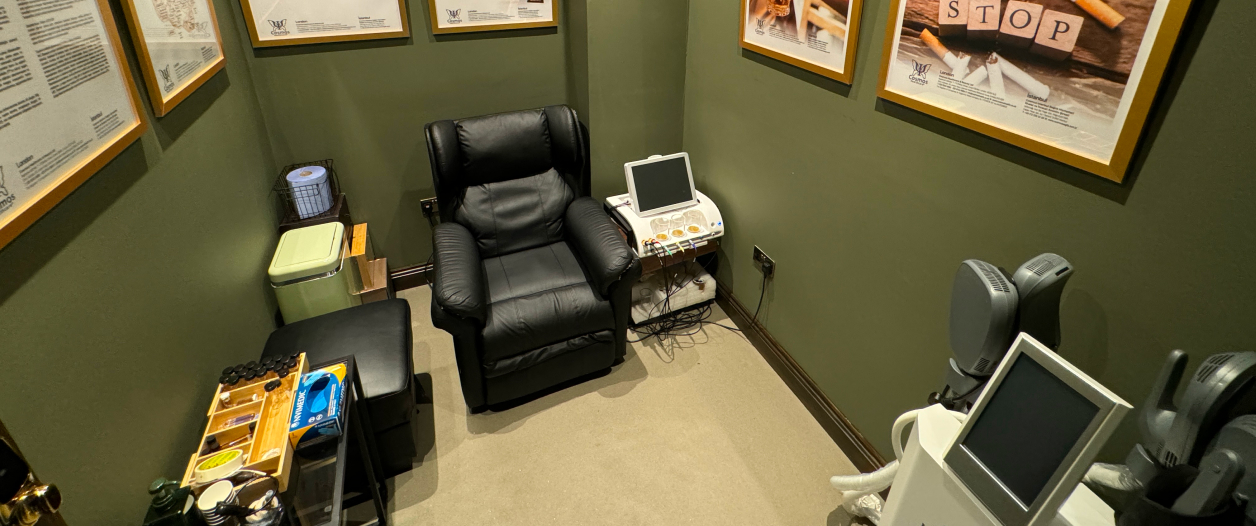How does TMS work?
Electricity is the brain's primary means of communication, and mental health issues often arise from disrupted neural communication.
TMS utilises magnetic pulses to stimulate neurons in specific brain regions associated with mood and anxiety, improving the communication between neurons.
The process involves placing an electromagnetic coil against the scalp, which then painlessly delivers magnetic pulses to stimulate nerve cells in areas of the brain implicated in mood regulation and depression.
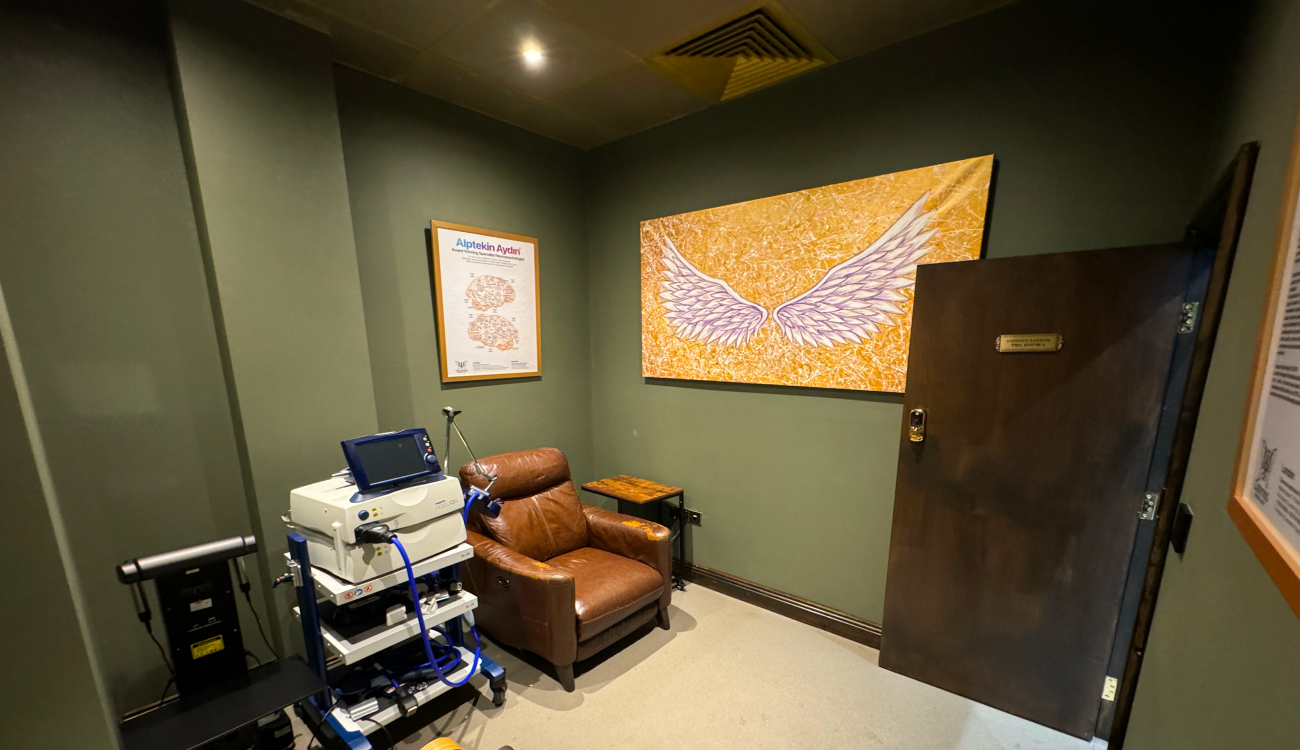
The TMS treatment course.
A standard TMS treatment course typically spans 4 to 6 weeks, with daily sessions 5 times per week.
However, advancements in TMS technology have led to the development of more efficient protocols, such as iTBS (intermittent Theta Burst Stimulation), which can significantly reduce treatment time to as short as 7 days, offering a quicker route to recovery.
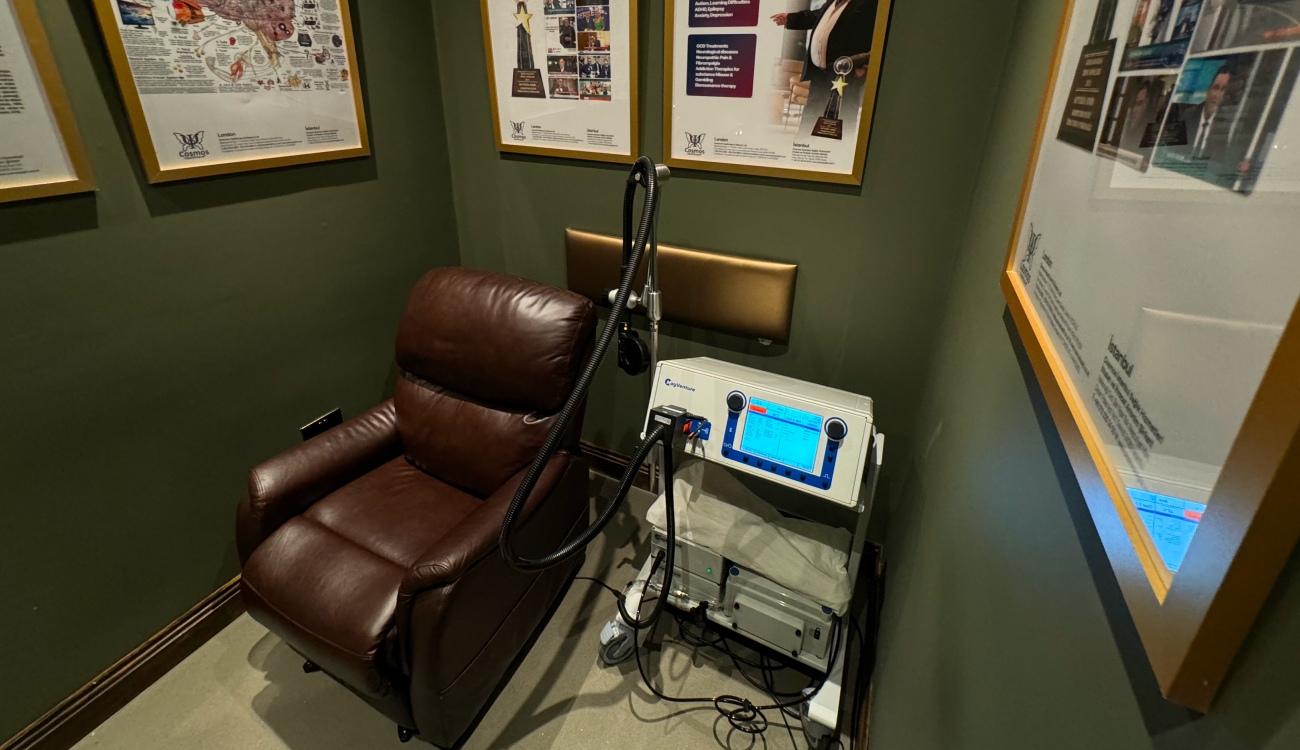
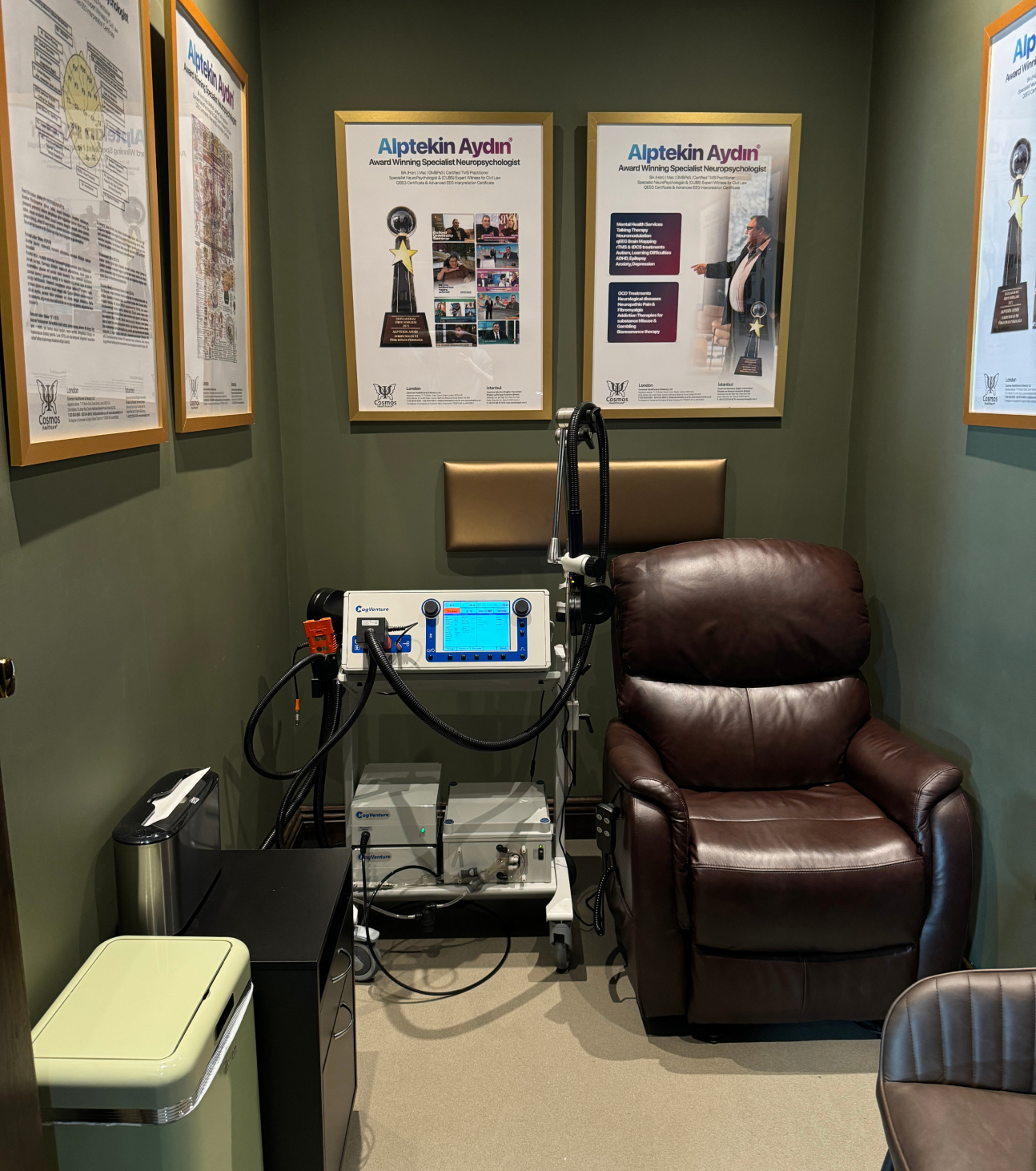
Conditions treated with TMS.
TMS has proven effective in treating a wide range of conditions, including but not limited to:
- Depression
- Anxiety and Panic Attacks
- Various Addictions (Alcohol, Nicotine, Gambling, Drug)
- OCD (Obsessive Compulsive Disorder)
- ADHD (Attention Deficit Hyperactivity Disorder)
- PTSD (Post-traumatic Stress Disorder)
- Suicidal Thoughts
- Trauma
- Motor Stroke Rehabilitation
- Parkinson's Disease Symptoms
- Alzheimer's Disease
- Chronic Neuropathic Pain
- Epilepsy
- Bipolar Disorder
- Schizophrenia
The strength of evidence for rTMS varies across conditions. For some indications rTMS is well established and included in national guidance; for others it remains an emerging or adjunctive option. Before starting any treatment course we review the current evidence, discuss alternative options and, where appropriate, liaise with external medical providers so that decisions are made within a responsible clinical framework.
Why choose Cosmos Health for your journey?
Choosing Cosmos Health means opting for a treatment that not only targets the symptoms but also the underlying causes of depression.
With our expert team, led by Specialist Psychologist Alptekin Aydin, you're receiving the very best treatment and taking steps towards lasting change and resilience.
Begin a new path.
Depression doesn't have to be a lifelong struggle.
With this unique combination of rTMS and CBT at Cosmos Health, discover a life beyond depression's shadows.
Contact us today to start your journey towards healing and hope.
rTMS is not an emergency or crisis service and is not a substitute for inpatient or community crisis care. If you are in immediate distress or at risk of harm, you should contact emergency services, your local crisis team or your GP without delay.
